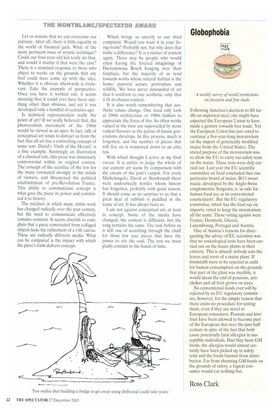Following America's decision to lift tariffs on imported steel, one
might have expected the European Union to have made a gesture towards free trade. Yet the European Union has just voted to continue a five-year-long moratorium on the import of genetically modified maize from the United States. The stated purpose of the moratorium was to allow the EU to carry out safety tests on the maize. These tests were duly carried out, Last year the EU scientific committee on food concluded that one particular brand of maize, Bt11 sweet maize, developed by the Anglo-Swiss conglomerate Syngenta, is 'as safe for human food use as its conventional counterparts'. But the EU regulatory committee, which has the final say on imports, voted to keep the moratorium all the same. Those voting against were France, Denmark, Greece, Luxembourg, Portugal and Austria.
One of Austria's reasons for disregarding the advice of EU scientists was that no toxicological tests have been carried out on the maize plants in their entirety. This is absurd: nobody eats the leaves and roots of a maize plant. If foodstuffs were to be rejected as unfit for human consumption on the grounds that part of the plant was inedible, it would mean the end of potatoes, artichokes and all fruit grown on trees.
No conventional foods ever will be rejected by an EU regulatory committee, however, for the simple reason that there exists no procedure for testing them, even if they are novel to European consumers. Peanuts and kiwi fruit have been allowed to become part of the European diet over the past half century in spite of the fact that both cause potentially fatal allergies in susceptible individuals. Had they been GM foods, the allergies would almost certainly have been picked up in safety tests and the foods banned from distribution. Far from shunning GM foods on the grounds of safety, a logical consumer would eat nothing but.
Ross Clark


























































 Previous page
Previous page